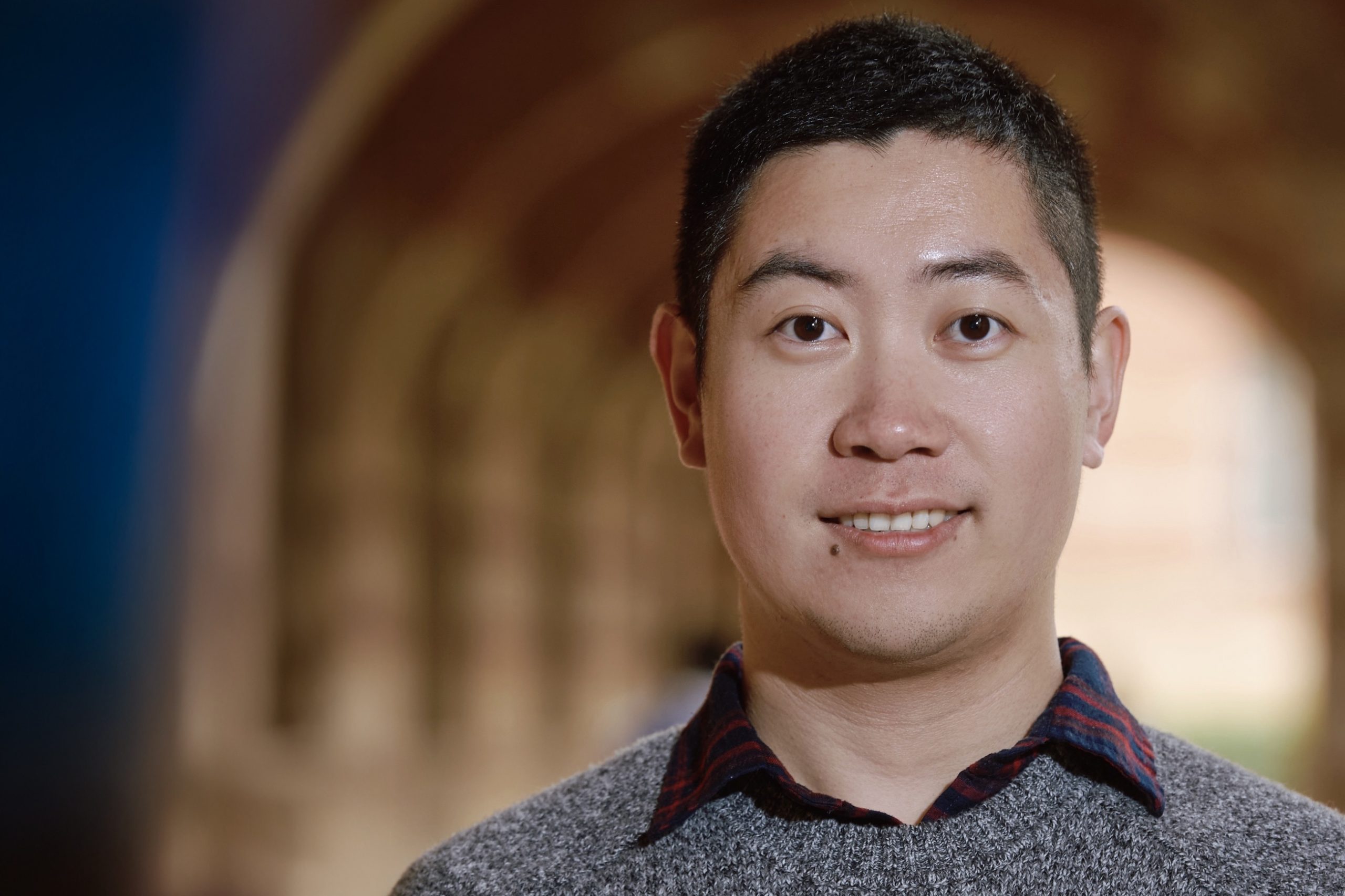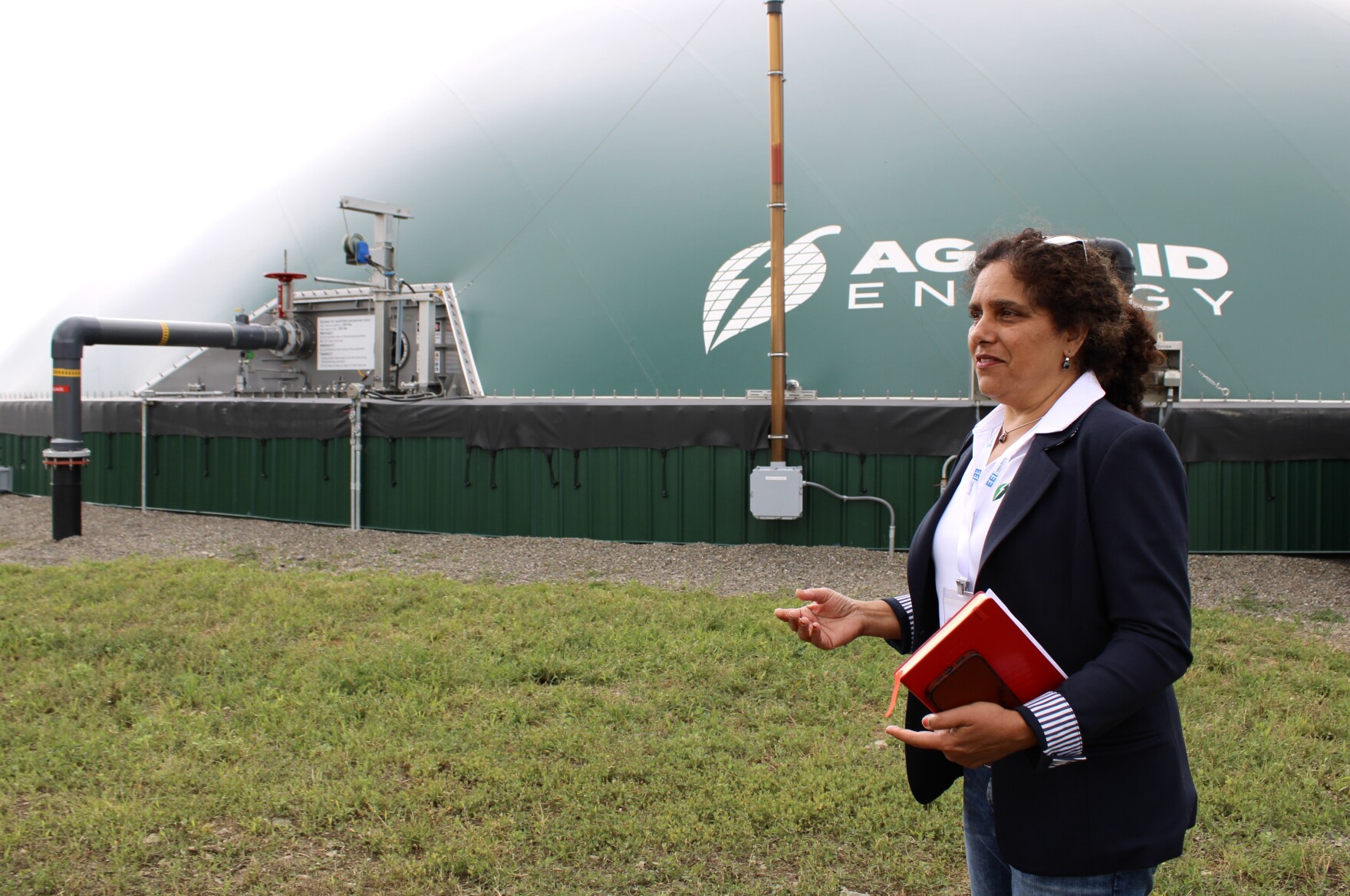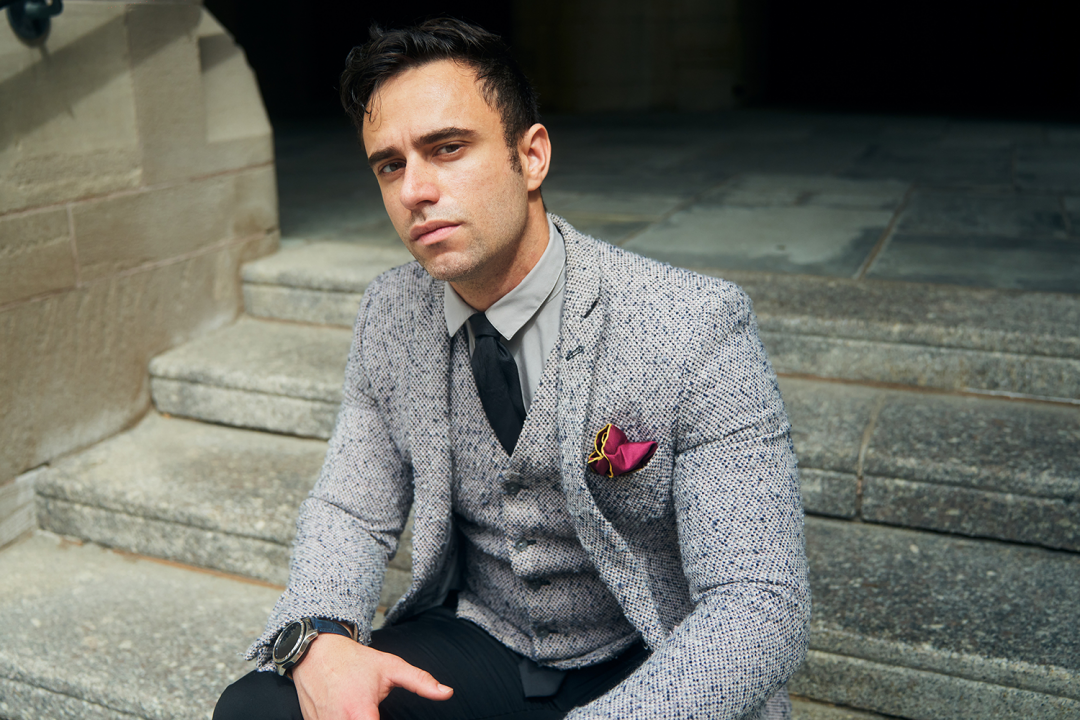Business startups emerging from UConn’s technology-fertile, highly inventive community have an important yet little-known ally located just minutes from campus.
Each month, an informal group of entrepreneurship experts – serial inventors, IP attorneys, startup professionals, business and engineering faculty, and venture capitalists – assembles for a few hours at a business facility in Tolland, CT, just seven miles from the University of Connecticut, to help startup hopefuls navigate what are frequently nuanced and important considerations of starting a small business. As often as not, the individuals presenting before this august, yet typically irreverent and respectfully honest, cadre are UConn faculty or students hoping to commercialize technologies forged within university laboratories.
Known as XcellR8 meetings and the brainchild of Nerac, Inc. president and CEO Kevin Bouley, the sessions are an important step on the way to many successful business launches. XcellR8 gatherings are part of the Connecticut Growth Network and aim to help local startups refine their business concepts, navigate regulatory and patent processes, and connect with financial resources. In recent years, the federal government and many states have recognized the enormous economic potential that research universities possess as breeding grounds for innovation and small business spinoffs that can help strengthen economies.
 In a 2005 Connecticut Economy op-ed piece, Bouley wrote “In my vision of Connecticut’s future, I see many lines of entrepreneurship and high tech activities radiating out from our universities, populated with new companies, creating products and services…I see students…collaborating on innovative concepts and developing business plans that are vetted and funded by local sources of capital and mentored by a growing network of business leaders.” He believes the technology corridor surrounding UConn, linked with a deep reservoir of startup resources in the community, will create an innovation ecosystem that will benefit the entire State.
In a 2005 Connecticut Economy op-ed piece, Bouley wrote “In my vision of Connecticut’s future, I see many lines of entrepreneurship and high tech activities radiating out from our universities, populated with new companies, creating products and services…I see students…collaborating on innovative concepts and developing business plans that are vetted and funded by local sources of capital and mentored by a growing network of business leaders.” He believes the technology corridor surrounding UConn, linked with a deep reservoir of startup resources in the community, will create an innovation ecosystem that will benefit the entire State.
Connecticut has devoted increasing resources to nurture and grow this pipeline, and last year UConn established for the first time an Office of Economic Development, headed by Vice President Mary Holz-Clause, Ph.D. The office works closely with state government, industry, UConn’s Innovation Accelerator, the Connecticut Innovation Ecosystem and Connecticut Innovations – which has provided seed funding to a number of the startups coming through XcellR8.
XcellR8 Team
The XcellR8 meetings depend upon a dedicated group of 60-75 savvy business startup pros who volunteer as their time, and interest in the startups’ particular challenges, allows, to listen attentively to short presentations by would-be entrepreneurs before indulging in a House of Commons-style rapid-fire barrage of incisive comments, questions, anecdotes, and recommendations born of long experience. With a combination of gravitas and levity, the loose alliance of experts prods presenters to gain a larger perspective on the business-development process and to acknowledge shortcomings while offering possible solutions.
The startup hopefuls invariably leave the meetings equipped with new insights, from possible flaws in their business plan to offers for incubation space, names of potential SBIR partners, and sources of seed funding.
 Ph.D. candidate Eric Sirois, a principal in Dura Biotech, presented a business plan for one of the company’s proprietary products, the Dura Heart Valve, before the XcellR8 group in February. Commenting on the experience, he said, “The XCellR8 program is a great fit for businesses like ours because we are engineers first, and trying to learn the business side as we go. The XCellR8 crowd conveys a ‘get it done’ philosophy that sent me off with a recharged battery, ready to get back to pushing this technology forward. I was able to make some one-on-one connections with professionals in areas very important to us, including regulatory affairs, quality control, and legal matters.” The meeting may also have unveiled a possible production site for the company and a potential contact who can assist with the eventual sale or sub-licensing of the technology.
Ph.D. candidate Eric Sirois, a principal in Dura Biotech, presented a business plan for one of the company’s proprietary products, the Dura Heart Valve, before the XcellR8 group in February. Commenting on the experience, he said, “The XCellR8 program is a great fit for businesses like ours because we are engineers first, and trying to learn the business side as we go. The XCellR8 crowd conveys a ‘get it done’ philosophy that sent me off with a recharged battery, ready to get back to pushing this technology forward. I was able to make some one-on-one connections with professionals in areas very important to us, including regulatory affairs, quality control, and legal matters.” The meeting may also have unveiled a possible production site for the company and a potential contact who can assist with the eventual sale or sub-licensing of the technology.
The Dura Heart Valve is a transcatheter aortic valve featuring a durable lifetime that is three-to-four times that of any valve currently on the market or in clinical trials. Once it passes all regulatory hurdles, the Dura Heart Valve will enable younger patients to enjoy long-duration TAV procedures. Dura Biotech was founded by UConn Associate Professor Dr. Wei Sun, a world expert in heart valve mechanics.
Dura Biotech is just one of three startups to face the XcellR8 crowd since December. In January, Advanced Column Solutions and Herman and Peterson Engineering delivered presentations before the group. All three teams have emerged from the Experiential Technology Entrepreneurship I and II course taught by Professor of Practice Hadi Bozorgmanesh, who often collaborates with Bouley to vault UConn-grown technologies successfully into the commercial arena.
M.S. student Alicia Echevarria, CEO of Advanced Column Solutions (ACS), said “It was very helpful to present in front of such a diverse audience. I make most of my presentations to other engineers, but the XcellR8 session gave me a chance to present in front of business-minded people from diverse backgrounds. One thing I learned from the session was that customers may value something complete different from what I thought was the main value proposition of our product.  Focusing on multi-hazard resilience and accelerated construction may appeal to engineers, but the durability of the system seemed to strike a chord among the business people.” She remarked that the meeting also yielded valuable contacts: “I now have people
Focusing on multi-hazard resilience and accelerated construction may appeal to engineers, but the durability of the system seemed to strike a chord among the business people.” She remarked that the meeting also yielded valuable contacts: “I now have people  to reach out to for financial, legal, and general business advice.” ACS is a consulting firm specializing in state-of-the-art structural column systems used in bridges, highway overpasses and other roadway applications where the structures may be vulnerable to seismic, blast, or fire hazards. Assistant Professor Arash Zaghi, Ph.D, PE, is the company’s co-founder. Read more here.
to reach out to for financial, legal, and general business advice.” ACS is a consulting firm specializing in state-of-the-art structural column systems used in bridges, highway overpasses and other roadway applications where the structures may be vulnerable to seismic, blast, or fire hazards. Assistant Professor Arash Zaghi, Ph.D, PE, is the company’s co-founder. Read more here.
Adam Herman and Jeffrey Peterson, co-founders of the eponymously-named Herman and Peterson Engineering, LLC, said “Presenting in front of more than 20 experts, including engineers, lawyers, and successful entrepreneurs, was an invaluable experience. The XcellR8 meeting gave us feedback on not only our business model, but also our presentation style; something that can only be attained in the environment the XcellR8 program creates. Since the meeting, we have established numerous contacts in IP protection, biotech product development, and funding opportunities.” Herman and Peterson manufactures Nanolyze, a breakthrough, high-performance, safe blood glucose test strip for diabetes management. The technology was developed by engineering Associate Professor Yu Lei.
Bouley and Bozorgmanesh agree that graduate students are particularly well suited for entrepreneurial ventures. “Unlike faculty – who possess deep, domain-specific expertise but generally are focused on research and teaching – and similarly, unlike undergraduates – who possess unbridled enthusiasm and energy but lack the depth of domain-specific expertise required for successful tech entrepreneurship – graduate students are on a pathway to building deep, domain-specific expertise but also still possess that boundless energy and enthusiasm that characterizes undergraduates. Graduate students are the tech entrepreneurial ‘sweet spot’ between acquisition and application of innovative ideas,” explains Bouley.



